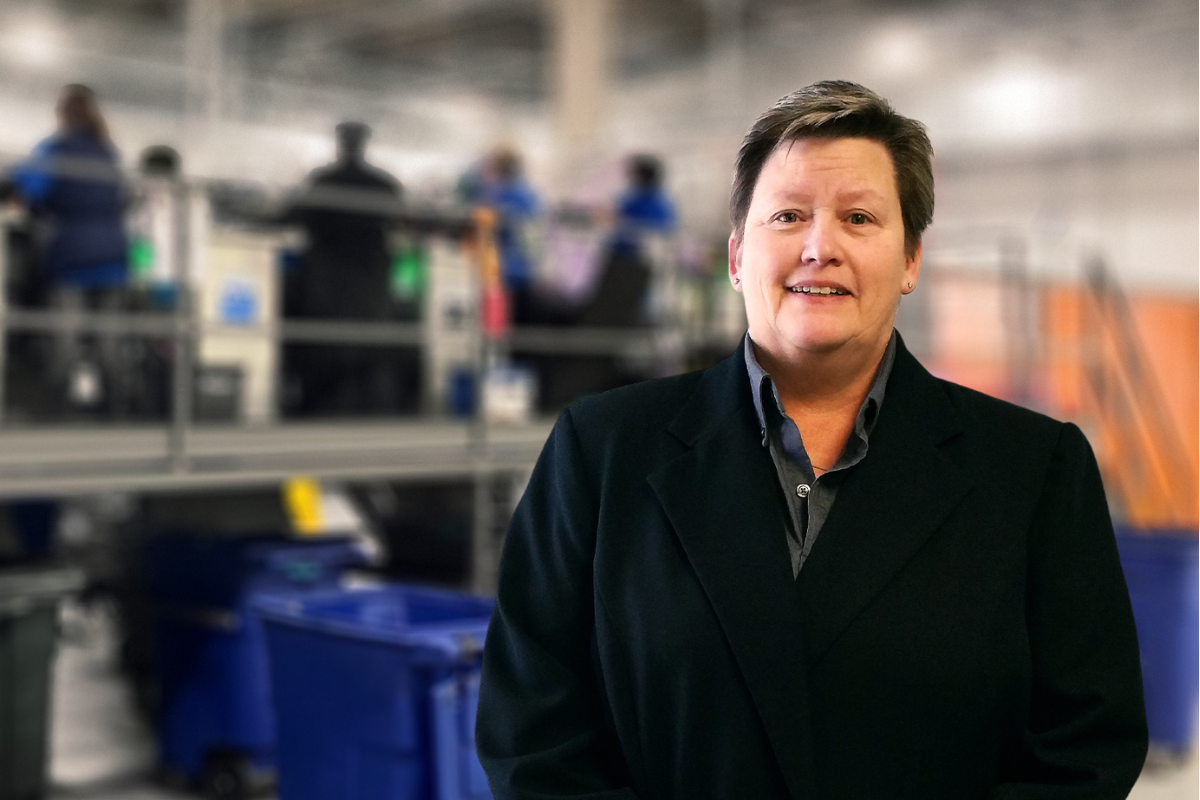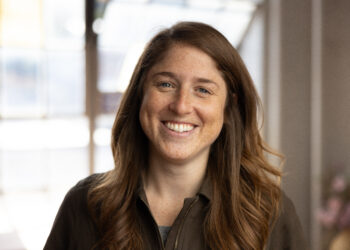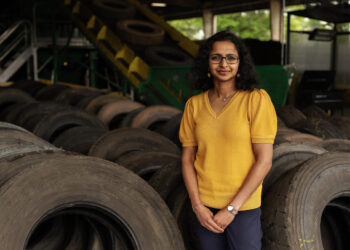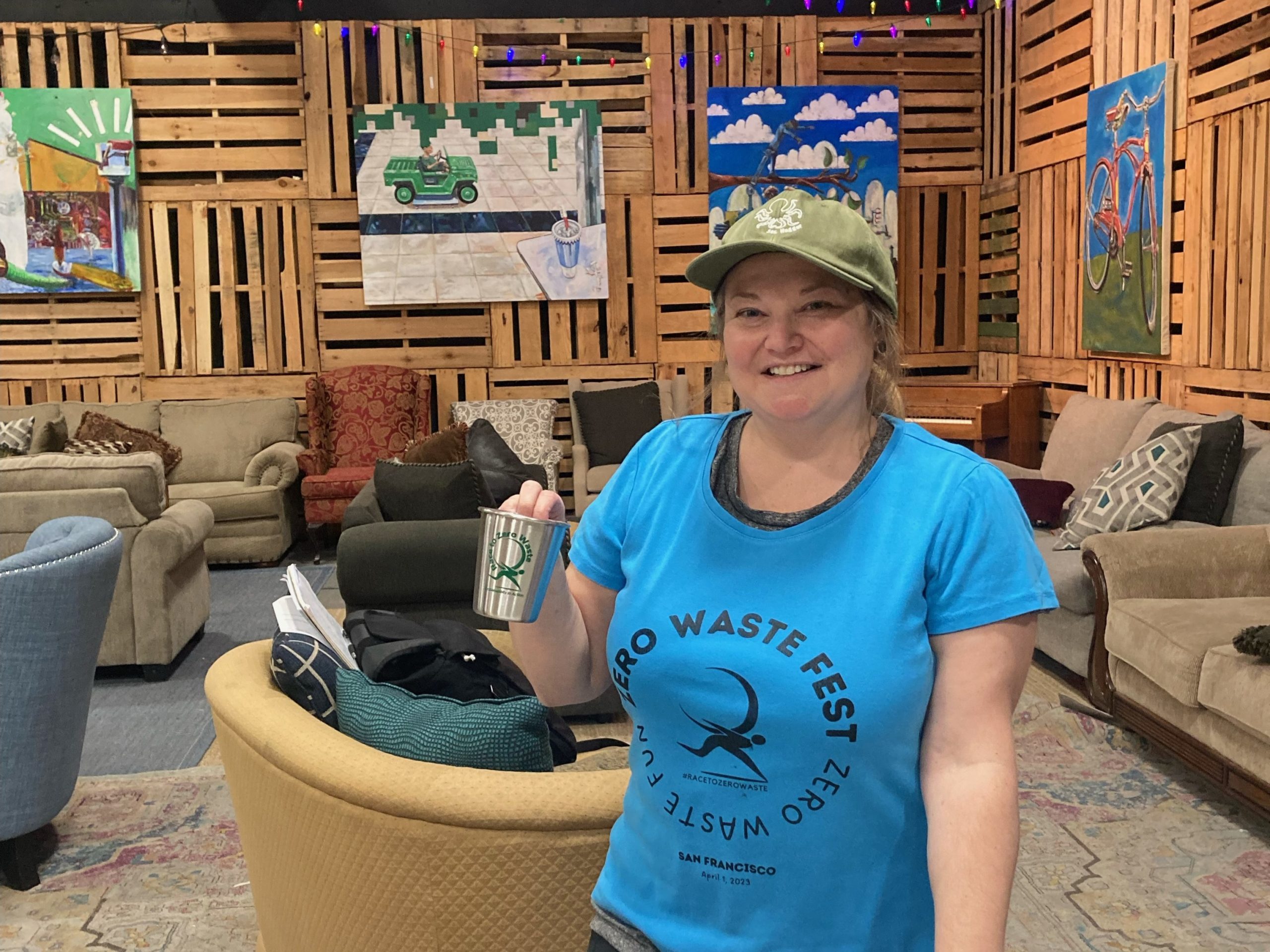A warm welcome back to “Women in Circularity,” where we shine a light on women moving us toward a circular economy. This month, I was pleased to connect with a leader in zero waste facilities: Sue Beets-Atkinson. Sue is the global vice president of sustainability at SBM Management Services. SBM is a leading global services provider that helps corporations meet their operations-related sustainability goals. Sue has 32 years of experience in business waste minimization.
How has your extensive experience in resource management shaped your approach to sustainability leadership?
My passion for creating a better future drives everything I do. Through experience and collaboration with peers, I have learned that clear, accessible communication is crucial for advancing sustainability initiatives. Breaking down complex concepts and eliminating jargon allows these ideas to resonate with diverse audiences, making it easier for stakeholders to understand and support sustainable change. Staying informed about the challenges companies face enables us to tailor our strategies to meet their priorities, increasing the likelihood of successful implementation. Additionally, building a team with diverse strengths and perspectives empowers us to challenge traditional processes, discover more efficient methods and consistently deliver greater value. It’s this commitment to innovation and clarity that positions us, and our partners, for long-term success.
How do you drive SBM’s commitment to helping clients achieve their waste reduction, reuse and recycling goals?
I lead sustainability initiatives through our janitorial contracts and provide consulting support to drive broader impact. My approach begins with understanding what’s in the waste containers, splitting the analysis into downstream and upstream solutions. This involves partnering with clients to eliminate wasteful resources, document existing reuse programs and explore opportunities with vendors to reduce packaging waste. By focusing on waste reduction and sustainable practices, our services not only support SBM’s growth but also strengthen client trust and long-term relationships, demonstrating our commitment to environmental stewardship and impactful change.
Could you share a project with a Fortune 500 that stands out in your career for its impact on advancing zero waste practices within a facilities management setting?
I began my career in waste management as a contractor for a major tech company, which later hired me to lead sustainability efforts for HP across the Americas. From 1999 to 2003, we successfully elevated overall diversion rates to over 90%. Recently, I had the opportunity to partner with them again, focusing on waste reduction projects and expanding reuse programs beyond traditional office settings, integrating sustainable practices into broader operations. Through SBM’s custodial backbone, I have gained unique insights into best practices across diverse industries, including high tech, life sciences, automotive and aerospace. This experience allows me to identify opportunities for improvement and share innovative solutions with our clients, driving sustainable change across all verticals.
What emerging trends in the circular economy do you believe will most significantly influence corporate sustainability strategies in the next few years?
Governments are increasingly introducing extended producer responsibility, waste reduction targets and circular economy incentives to encourage corporate sustainability. To meet these evolving regulations, companies are leveraging AI and IoT (Internet of Things) technologies for real-time tracking of product life cycles, optimizing resource use, enhancing recovery processes and extending product life. Achieving these goals also benefits from strong organizational alignment, where leadership sets clear sustainability objectives and employees are encouraged to support those initiatives, creating a unified approach to driving sustainable change.
Are there any key tools you rely on for inspiration?
I often return to the fundamentals that inspire me, like The Story of Stuff, impactful publications and insightful communications that spark new ideas and pathways for sustainability. These resources provide a wealth of inspiration and direction, helping me identify what resonates most with our clients. Lately, my focus has shifted toward tackling plastic, with an emphasis on reducing single-use plastics and understanding the growing impact of microplastics — not just in our environment, but even within our own bodies. By addressing these critical issues, I aim to drive meaningful change that supports both global sustainability and client-specific goals.
— MaryEllen Etienne is the creator of “Women in Circularity.” Etienne works on the Market Transformation and Development team for the U.S. Green Building Council. She has over 20 years of experience in sustainability and is a champion of the circular economy.




























